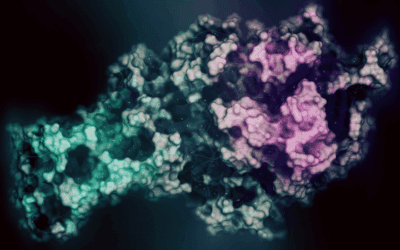Tolle Causam
Adam Silberman, ND
Bronner Handwerger, ND
In men, healthy levels of endogenous testosterone have been associated with regulation of metabolic activity, glucose metabolism, body composition, and cholesterol levels – all of which, when properly managed, reduce a man’s overall risk of cardiovascular disease.1,2 Several studies have also shown an inverse relationship between serum testosterone levels and both incidence and severity of coronary artery disease.2
Testosterone Therapy & CV Risk
Testosterone prescriptions for men with low testosterone, defined as ≤300 ng/dL total testosterone and ≤5 ng/dL free testosterone, have continually increased year after year over the past decade,3 partly due to advertising campaigns by the pharmaceutical industry, but also due to managing a male patient population that continues to live longer and longer.
However, in 2015 the safety of exogenous testosterone therapy as a treatment for low testosterone levels in men came into question when the US Food & Drug Administration (FDA) highlighted a potential for increased risk of cardiovascular events in men using testosterone therapy.4 Although we have research demonstrating that testosterone therapy improves cholesterol levels, body composition, and glycemic control, the FDA labeling of increased risk of cardiovascular events has left clinicians in a gray area in terms of how to best approach their male patients with low testosterone levels.2,5
The reality is that high-quality, long-term clinical studies examining the physiological effects and clinical outcomes of testosterone therapy in men do not yet exist, particularly with respect to cardiovascular disease, and must be funded to help guide our clinical approach.3,6 At the same time, however, numerous studies do exist showing the benefit of normalizing levels of testosterone on reducing cardiovascular disease risk and all-cause mortality in men. For example, a recent meta-analysis found reduced cardiovascular disease risk in a male cohort with metabolic syndrome treated with testosterone, as well as studies demonstrating no overall increased risk of cardiovascular disease events in men using testosterone therapy.2 Additionally, 25 medical societies have now called for the retraction of a study by Vigen et al that reported increased CV risks with testosterone therapy (published in JAMA in 2013, and one of the 6 key studies that contributed to the 2015 FDA labeling decision), noting its findings to be misleading.7,8
In our clinical opinion, 1) free and total testosterone levels should be regularly monitored as part of a comprehensive men’s health plan, particularly due to its association with many of the key risk factors of cardiovascular disease; 2) normal testosterone levels should be a target of therapy in treating an aging male population when presenting with pathologies known to have an association with low testosterone levels; and 3) the benefit of testosterone therapy outweighs the perceived risk in patients with existing pathologies associated with cardiovascular disease, particularly when incorporated alongside integrative diet, lifestyle, mental-emotional, exercise, herbal, homeopathic, and pharmaceutical support.
Workup for Androgen Deficiency
It is generally understood that testosterone levels tend to decline slowly and progressively, starting around age 30 in most men.9 However, in some men testosterone drops so low that it compromises their health. Low testosterone has been associated with obesity, insulin resistance, type 2 diabetes, hypercholesterolemia, dyslipidemia, and hypertriglyceridemia, all of which are associated with an increased risk of cardiovascular disease.10
In working up androgen deficiency and determining how to manage it within the context of cardiovascular disease risk, we first evaluate and address any possible organic causes of primary or secondary hypogonadism. These might include tumors, inherited disorders (eg, hemochromatosis, Klinefelter syndrome), inflammatory conditions, anatomical abnormalities, viral infections (eg, mumps, HIV), physical trauma, etc, any of which can affect pituitary and gonadal production of androgens. Once organic causes have been addressed or ruled out, we can then evaluate and address key functional contributors to the observed androgen deficiency, as well as provide overall support to the androgen-deficient male patient. This involves screening and addressing xenoestrogen and endocrine-disrupting chemical exposure, recreational drug use, past or current anabolic steroid use, increased alcohol intake, nutrient deficiencies, heavy metal exposure, high-stress lifestyle, poor diet and fluid consumption, inadequate sleep cycles, poor relationships (particularly with a sexual partner), abnormal endogenous hormone levels (including other circulating hormones and binding proteins that can impact testosterone production or utilization), and a de-conditioned or over-trained physical body. Alongside genetic, family, and personal medical considerations, this evaluation usually uncovers a number of therapeutic windows from which to manage cardiovascular disease risk and support ideal hormone levels in men.
Key Laboratory Tests
Key biomarkers that we incorporate as a baseline into our lab workup when evaluating cardiovascular disease risk and hormone levels in men include:
- CBC w/ differential
- CMP
- HgbA1c
- Lipid panel
- CRP (C-reactive protein)
- Lp-PLA2 (Lipoprotein-associated phospholipase A2)
- Homocysteine
- TSH, fT3, fT4, Anti-TPO and Anti-TG antibodies
- Total and Free Testosterone, SHBG (Sex-hormone binding globulin)
- DHEA-S
- Estradiol
- IGF-1 (Insulin-like growth factor-1)
- IGFBP-3 (IGF-binding protein-3)
- Prolactin
- LH (Luteinizing hormone)
- GNRH-1 (Gonadotropin releasing hormone-1)
- PSA (Prostate-specific antigen)
- B12 and Folate
- 25-OH-Vitamin D3
- Urine Toxic Elements
- Urine 8-OH-dG (8-hydroxy-2’-deoxyguanosine)
- BIA (Bio-impedance Analysis)
Key Therapeutics
Alongside aggressive management of modifiable lifestyle factors, key therapeutics we consider when addressing testosterone levels and cardiovascular disease risk in men include:
- Ginseng
- Tribulus terrestris
- Urtica dioica agglutinin
- Lepidium meyenii (maca)
- Indole-3-carbinol
- Arginine
- Glutamine
- Vitamin C with flavonoids
- Zinc picolinate
- Transdermal testosterone or IM testosterone cypionate
- Clomiphene citrate
At a minimum, we recommend in-office follow-ups very 6 months including biomarker evaluation, to monitor progression of treatments that were initiated and to make any relevant adjustments. Using a whole-systems approach is essential in managing cardiovascular disease risk and hormone balance in men. Therefore, we also work up and address additional organ system pathology, as indicated on patient presentation. Besides cardiovascular, thyroid, and adrenal support, this may include neurological, pulmonary, gastrointestinal, liver/gallbladder, renal, psychological, and immune system management.
Summary
Bottom line, we feel that high-quality, long-term clinical studies of the physiological effects and clinical outcomes of testosterone therapy in men in respect to cardiovascular disease should be funded to help guide our clinical approach and understanding of the risks and benefits of testosterone therapy in the context of managing an aging male population. However, until such studies become available, the numerous studies currently existing that point to the beneficial relationship between normal testosterone levels and a decreased risk of cardiovascular disease in men still warrant consideration of testosterone as a target for therapy, particularly in at-risk patients. Evaluation of the available literature at this point in time indicates that the benefit of incorporating testosterone hormone therapy for addressing low testosterone levels may outweigh the risk, particularly in men with health conditions that increase their risk of cardiovascular disease.
References:
- Yeap BB, Alfonso H, Chubb SA, et al. In older men an optimal plasma testosterone is associated with reduced all-cause mortality and higher dihydrotestosterone with reduced ischemic heart disease mortality, while estradiol levels do not predict mortality. J Clin Endocrinol Metab. 2014;99(1):E9-E18.
- Morgentaler A, Miner MM, Caliber M, et al. Testosterone therapy and cardiovascular risk: advances and controversies. Mayo Clin Proc. 2015;90(2):224-251.
- Baillargeon J, Urban RJ, Ottenbacher KJ, et al. Trends in androgen prescribing in the United States, 2001 to 2011. JAMA Intern Med. 2013;173(15):1465-1466.
- US Food & Drug Administration. FDA Drug Safety Communication: FDA cautions about using testosterone products for low testosterone due to aging; requires labeling change to inform of possible increased risk of heart attack and stroke with use. Last updated January 16, 2016. FDA Web site. http://www.fda.gov/Drugs/DrugSafety/ucm436259.htm. Accessed August 1, 2016.
- Morris PD, Channer KS. Testosterone and cardiovascular disease in men. Asian J Androl. 2012;14(3):428-435.
- Anawalt BD. Is men’s health just a single letter? J Clin Endocrinol Metab. 2014;99(1):70-72.
- Vigen R, O’Donnell CI, Barón AE, et al. Association of testosterone therapy with mortality, myocardial infarction, and stroke in men with low testosterone levels. JAMA. 2013;310(17):1829-1836.
- Desroches B, Kohn TP, Welliver C, Pastuszak AW. Testosterone therapy in the new era of Food and Drug Administration oversight. Transl Androl Urol. 2016;5(2):207-212.
- Harman SM, Metter EJ, Tobin JD, et al. Longitudinal effects of aging on serum total and free testosterone levels in healthy men. Baltimore Longitudinal Study of Aging. J Clin Endocrinol Metab. 2001;86(2):724-731.
- Araujo AB, Dixon JM, Suarez EA, et al. Clinical review: Endogenous testosterone and mortality in men: a systematic review and meta-analysis. J Clin Endocrinol Metab. 2011;96(10):3007-3019.
Adam Silberman, ND, provides integrative and preventative family medical services alongside regenerative orthopedic therapies at Integrative Health Solutions in La Jolla, CA, with Dr Bronner Handwerger. He dedicates time every week to serving the underserved and has a mission to bring integrative and preventative family medicine to the front line of primary care. His project, Blueprint Wellness, provides corporate programs for employees and their families. His blog, My Health Matters, provides information on maximizing health and vitality to the public. He shares his life’s passions with his lovely wife Serena and inspiring son Jaxon. Find Adam online at: www.blueprintwellness.org.
Bronner Handwerger, ND, treats many professional NFL and Olympic athletes along with Special Ops and Navy SEALs using state-of-the-art regenerative therapies. He has been using regenerative modalities like platelet-rich plasma, prolotherapy and other techniques successfully to treat and help heal patients’ injuries, both acute and chronic. He also focuses on endocrinology and family practice. Website: www.docbron.com























